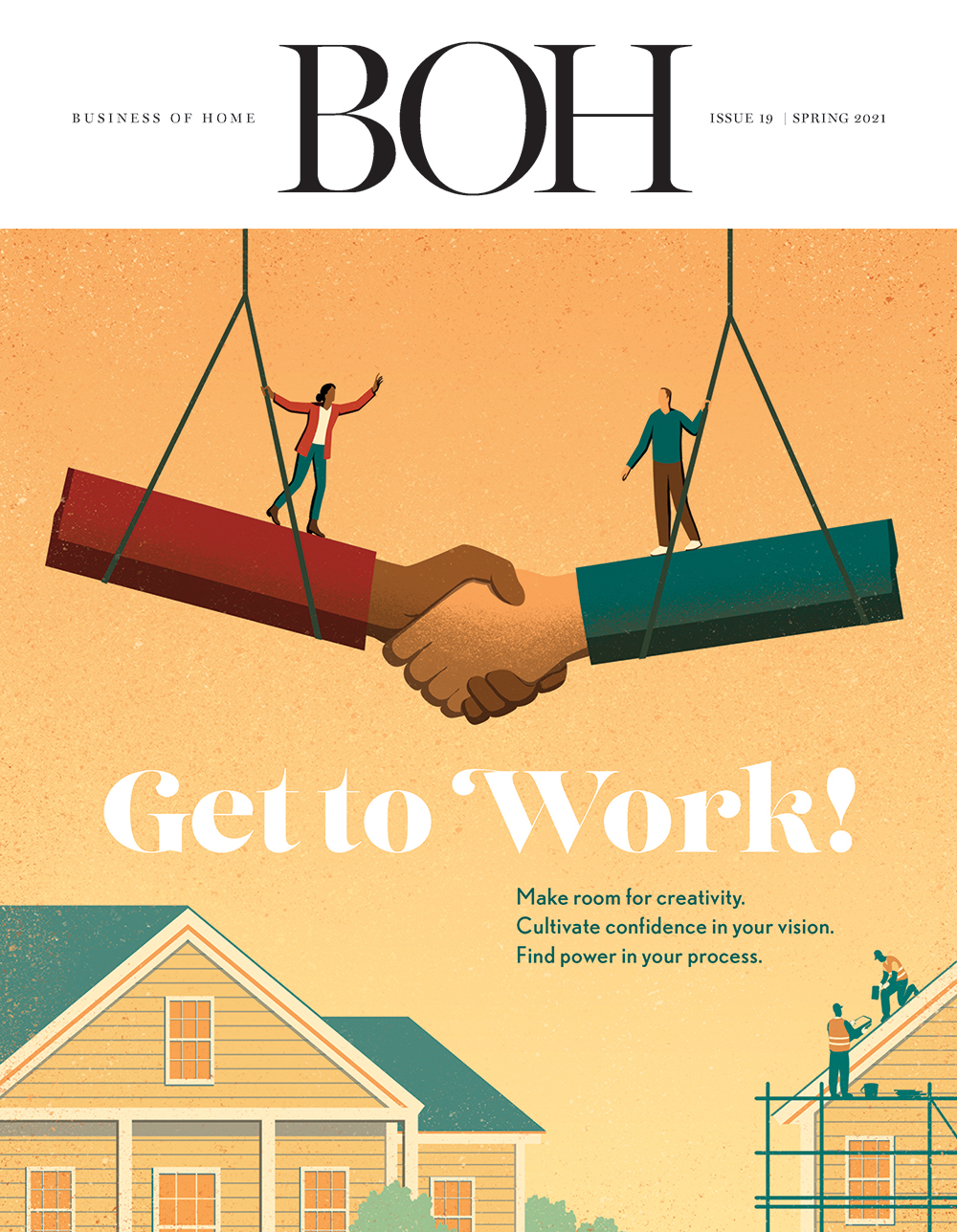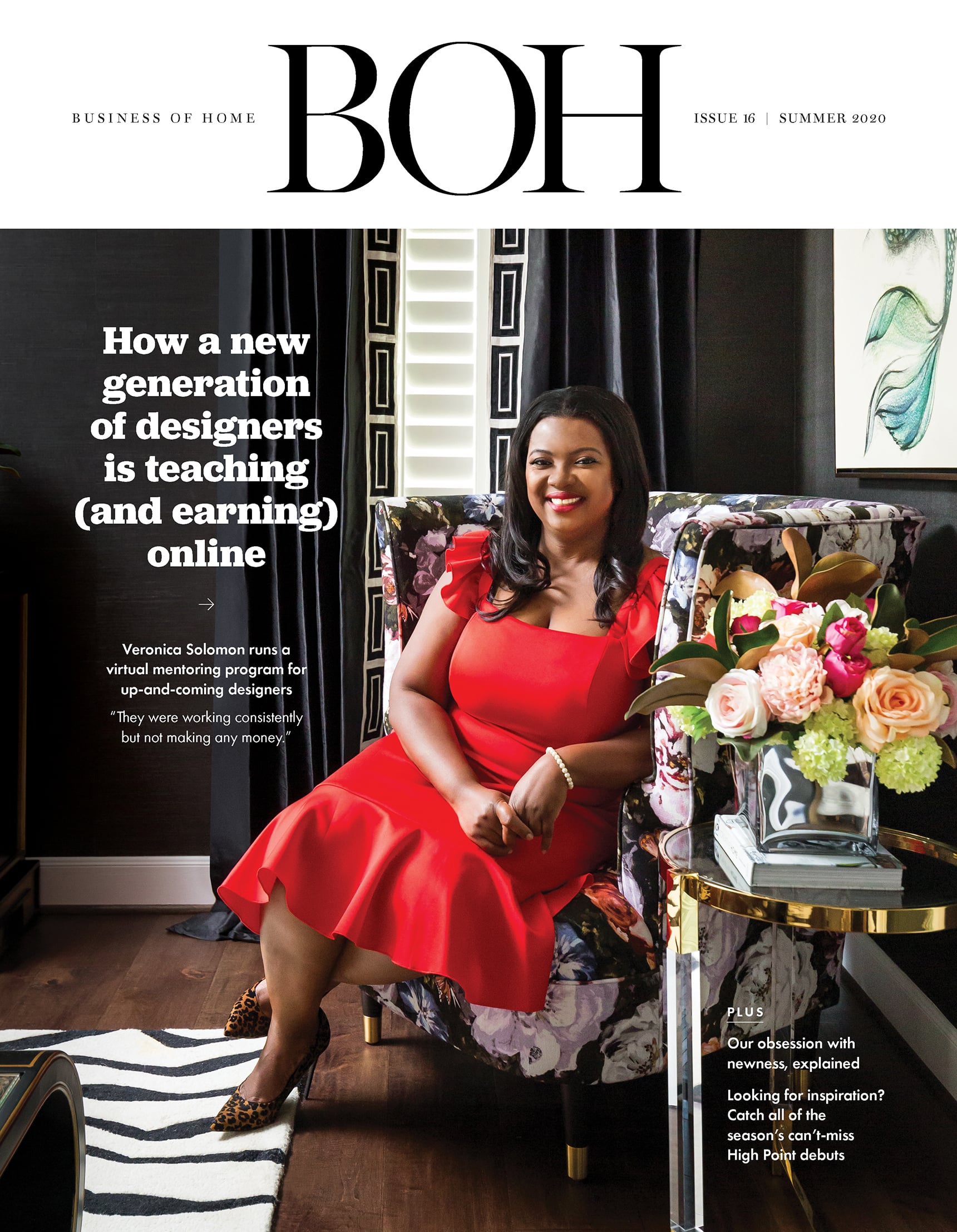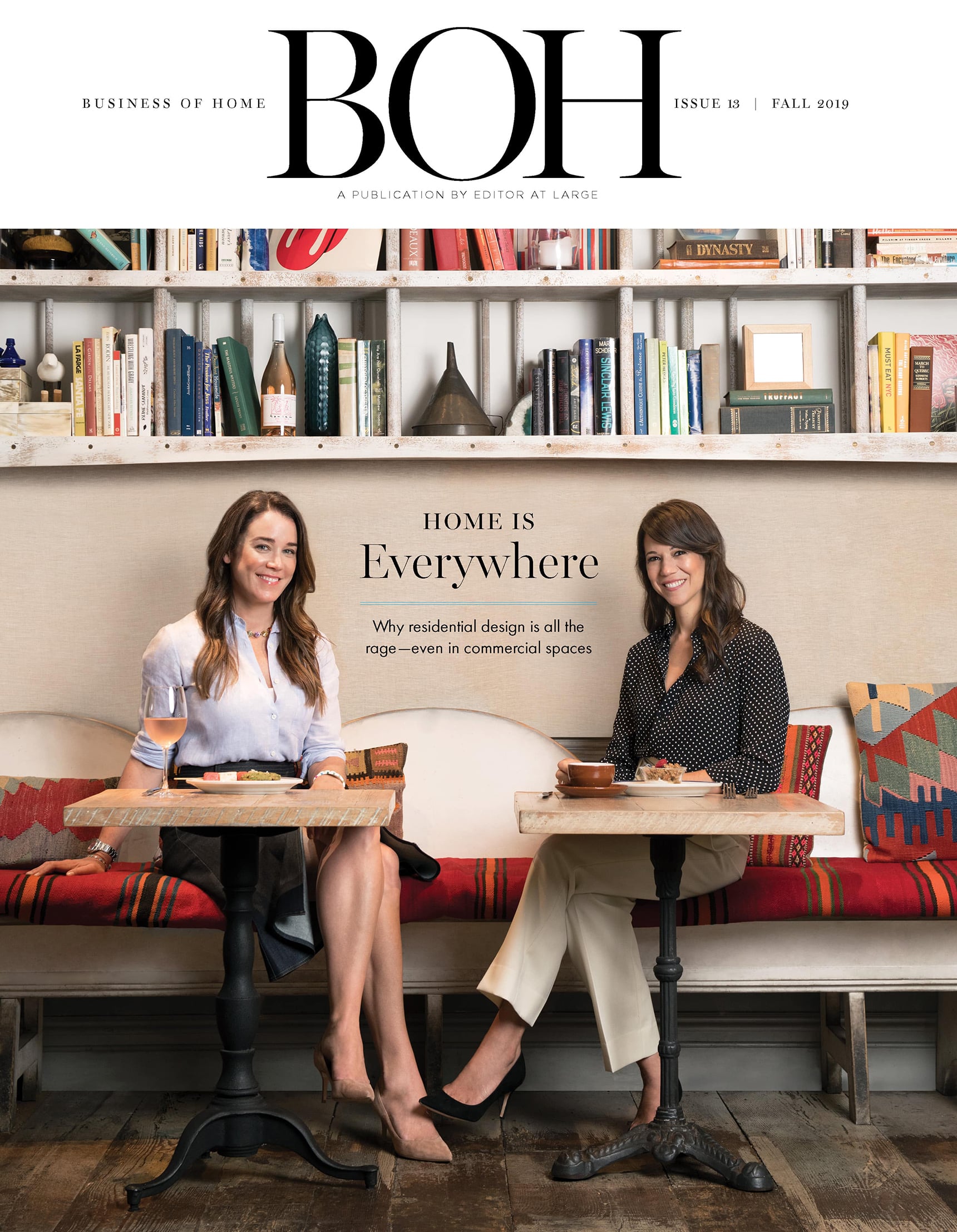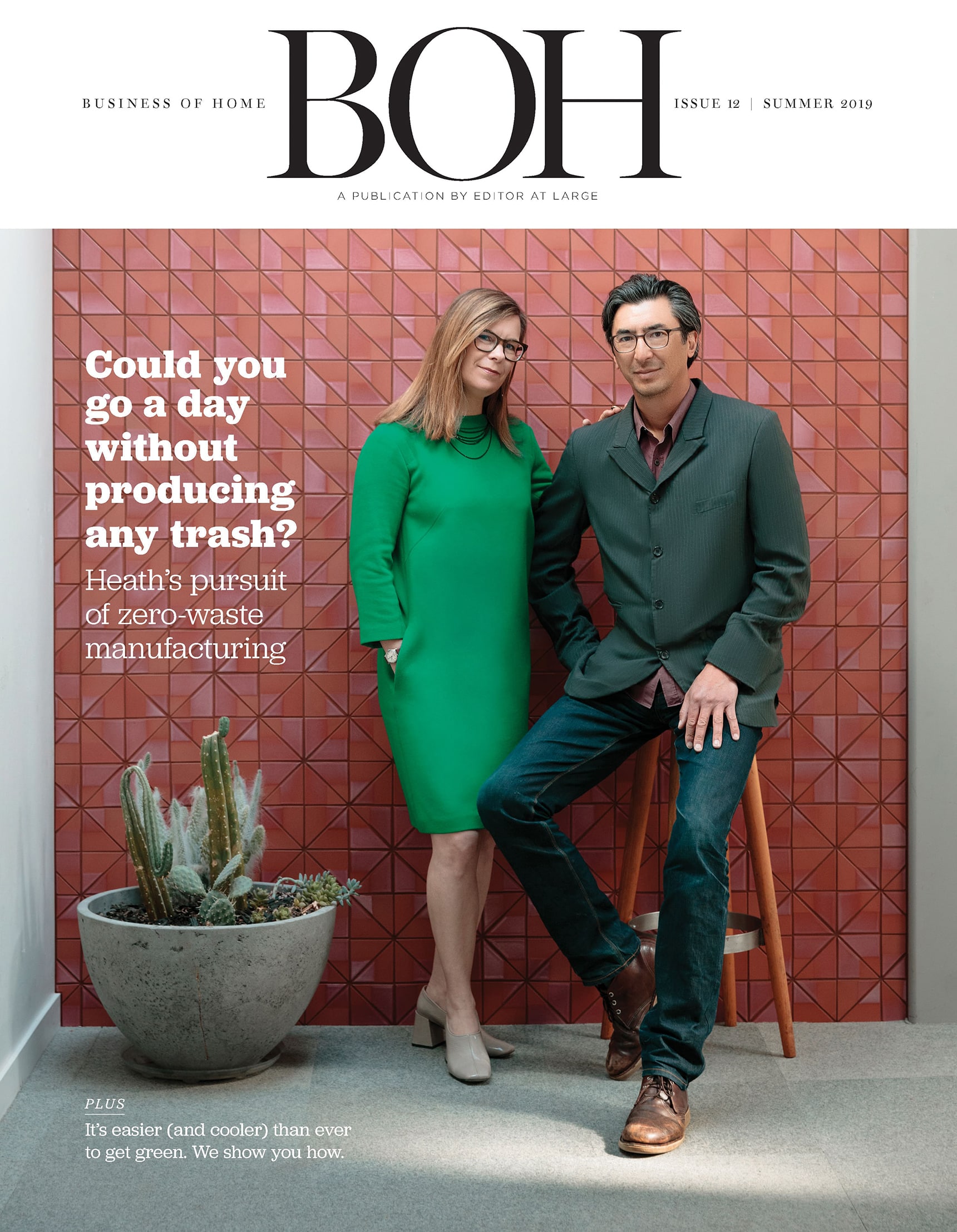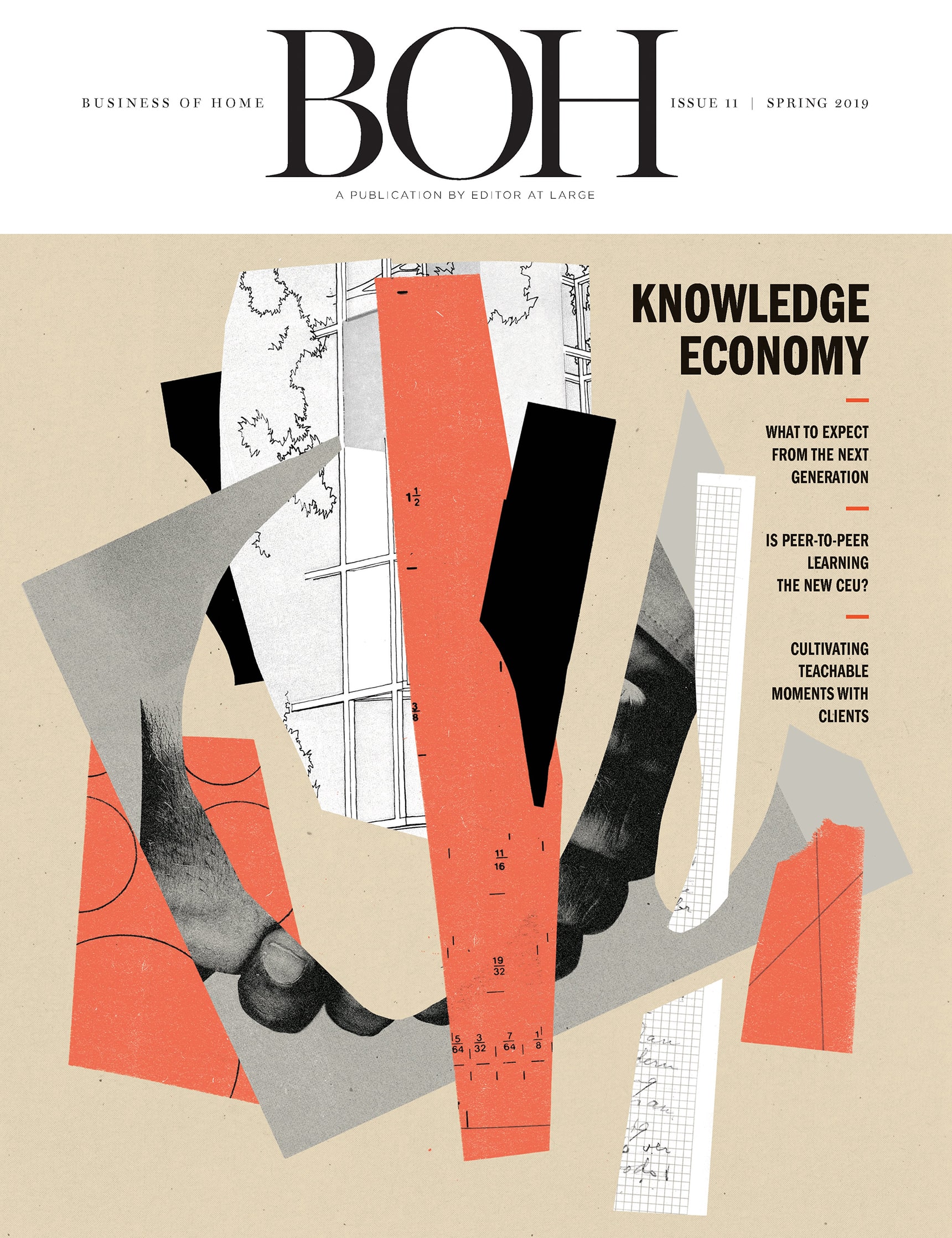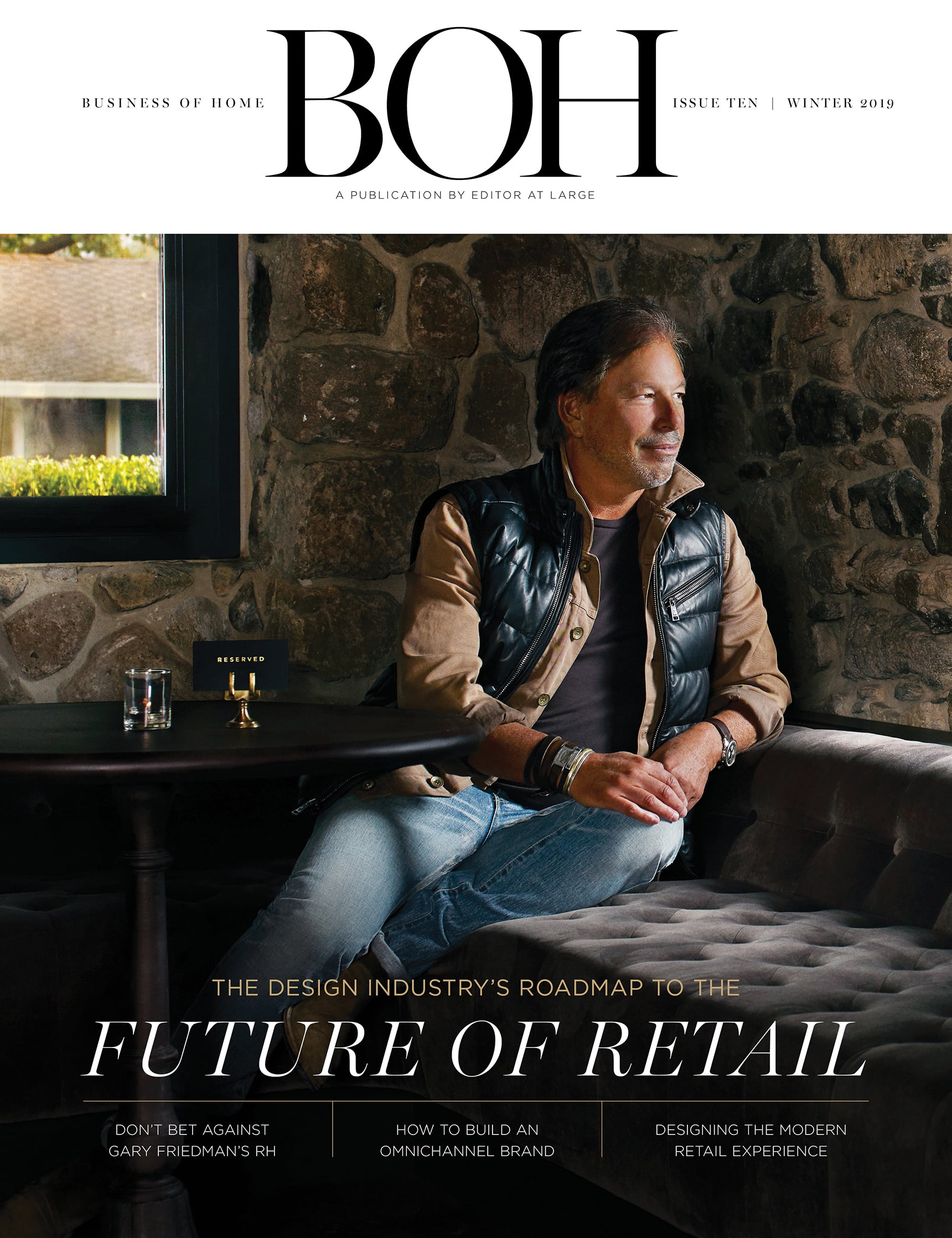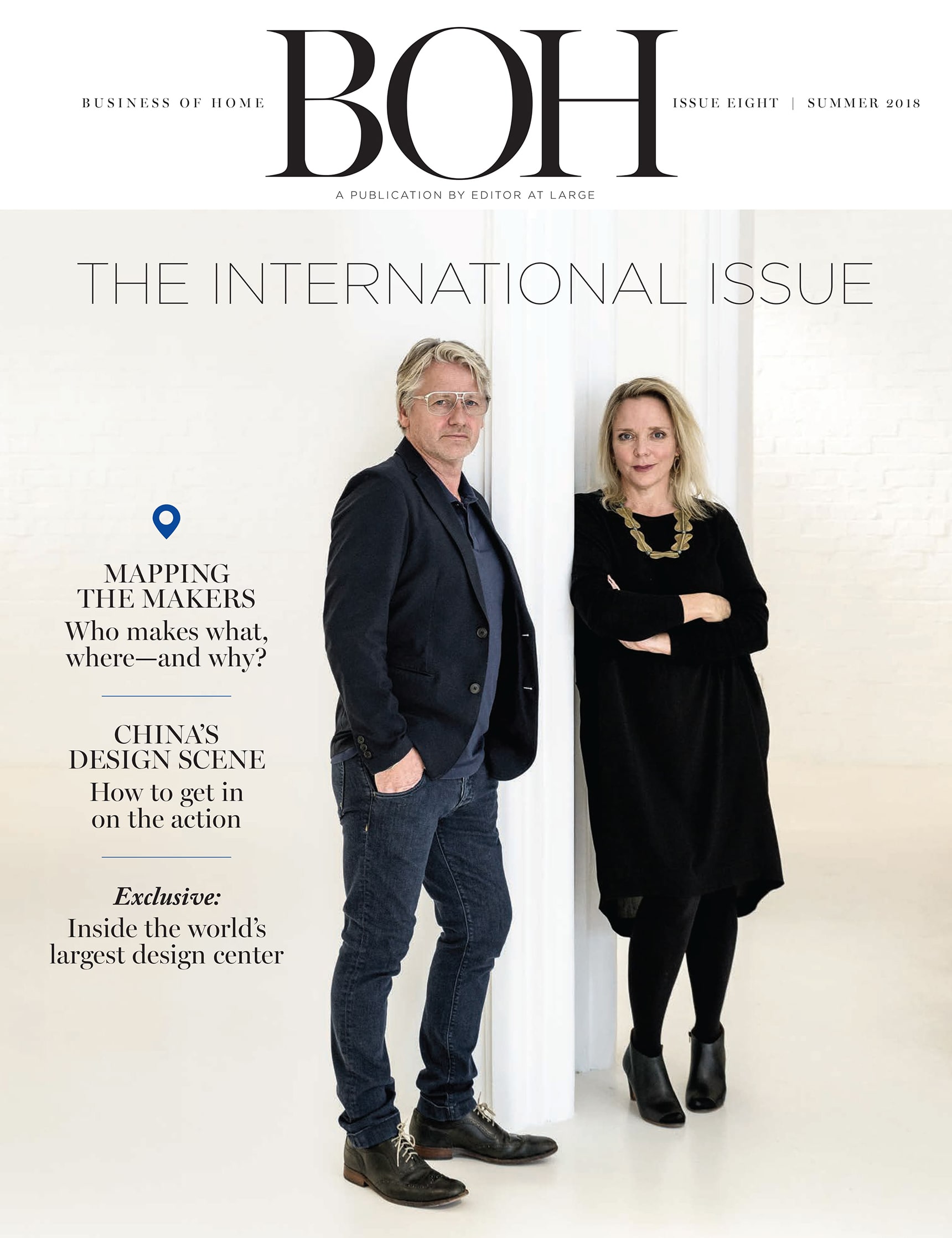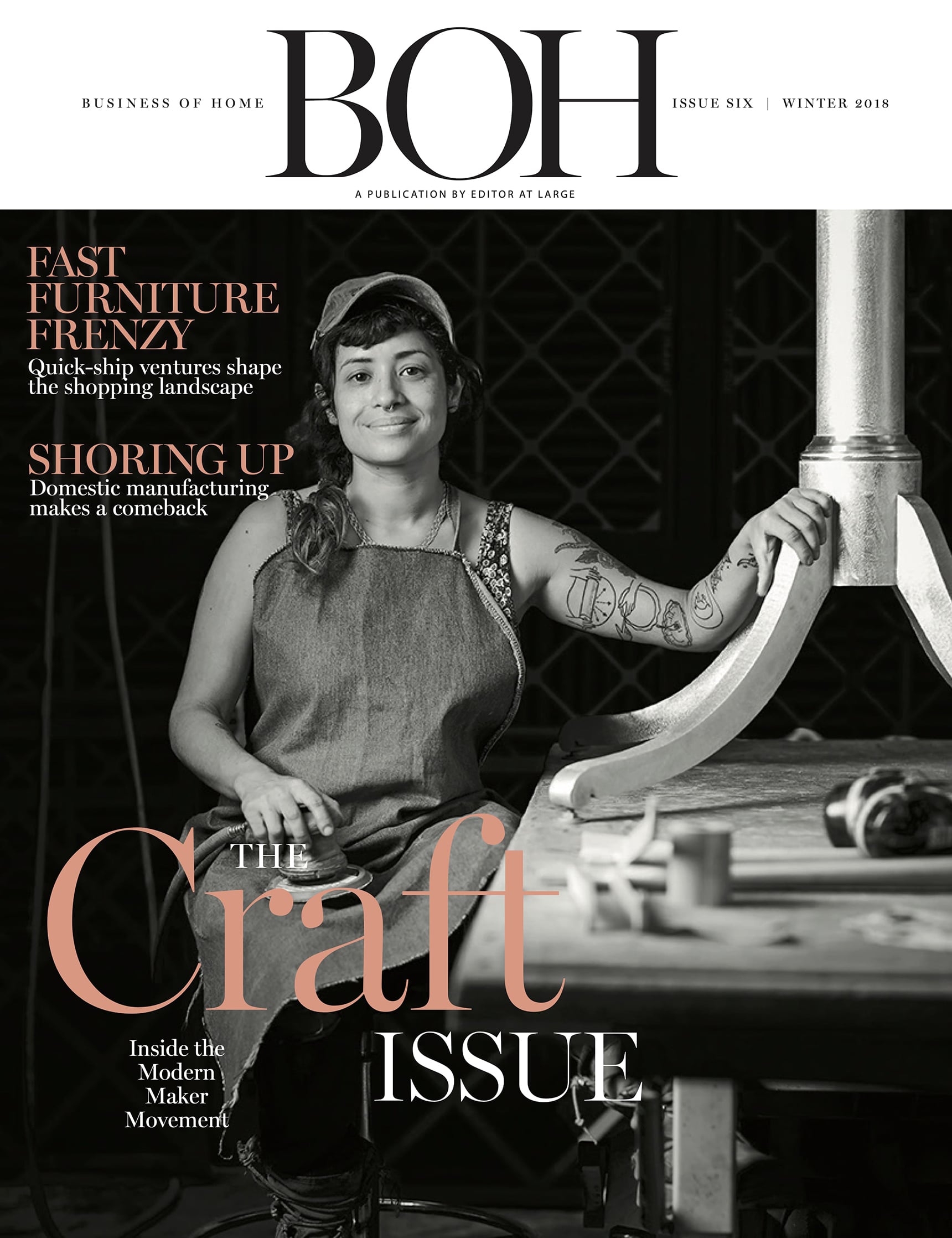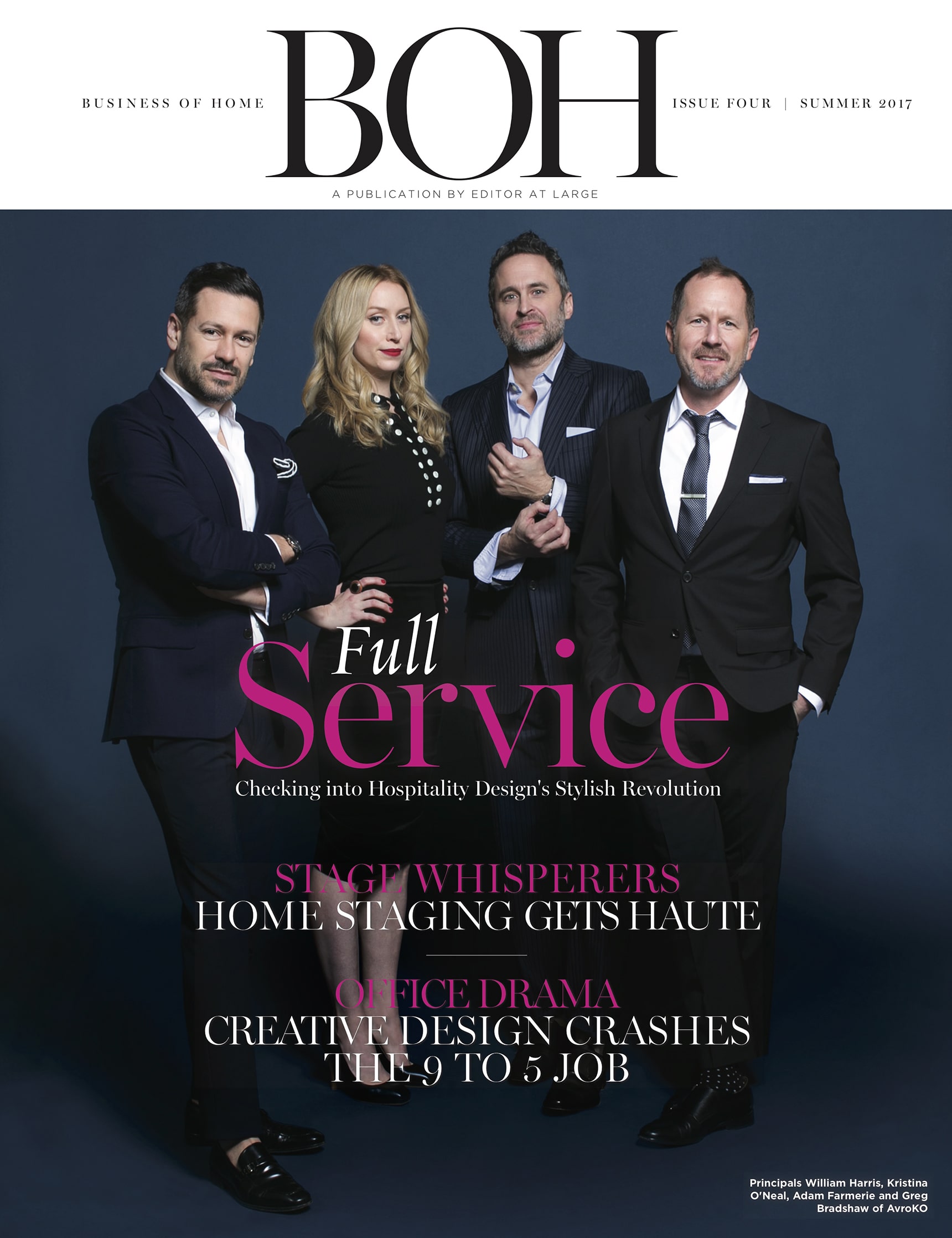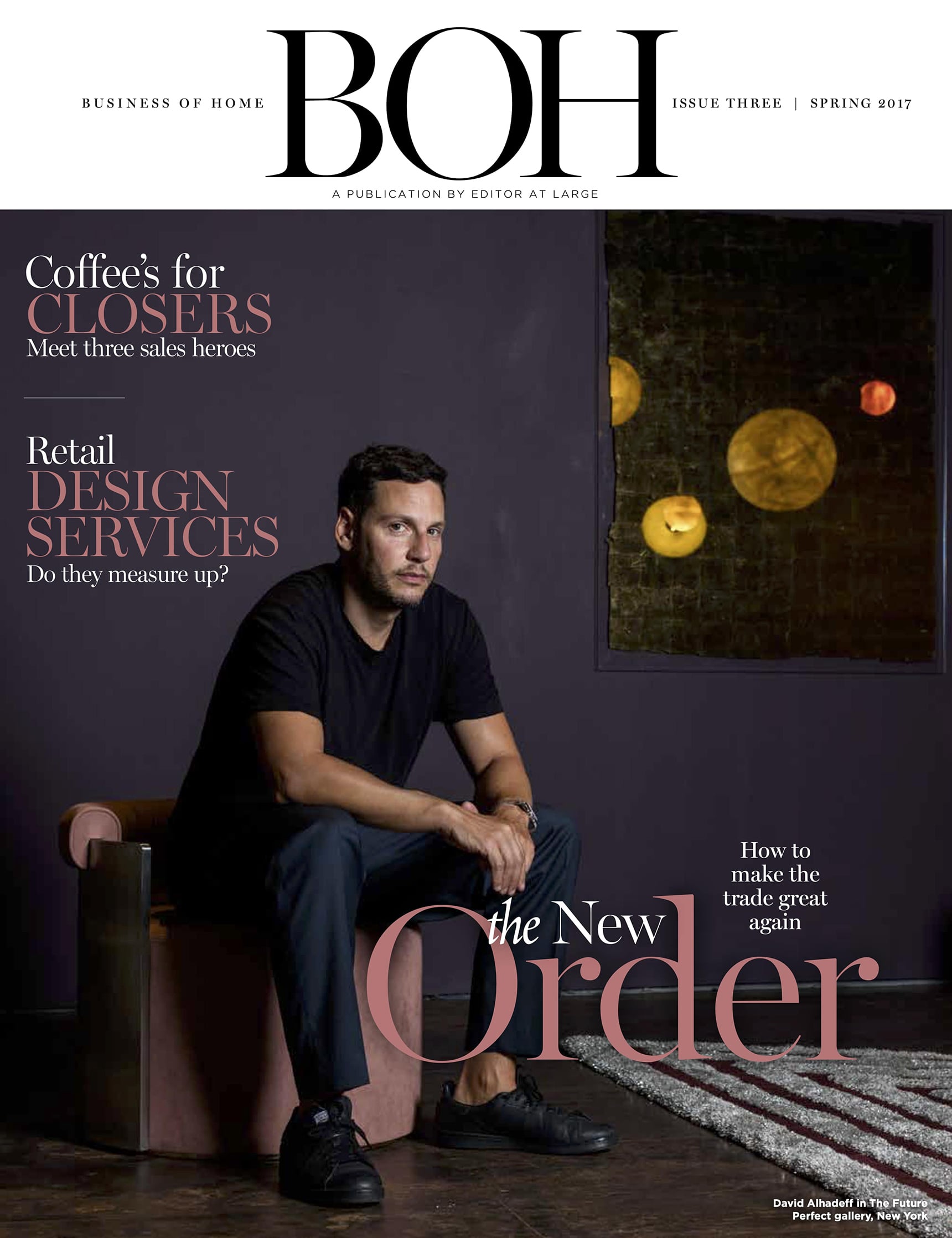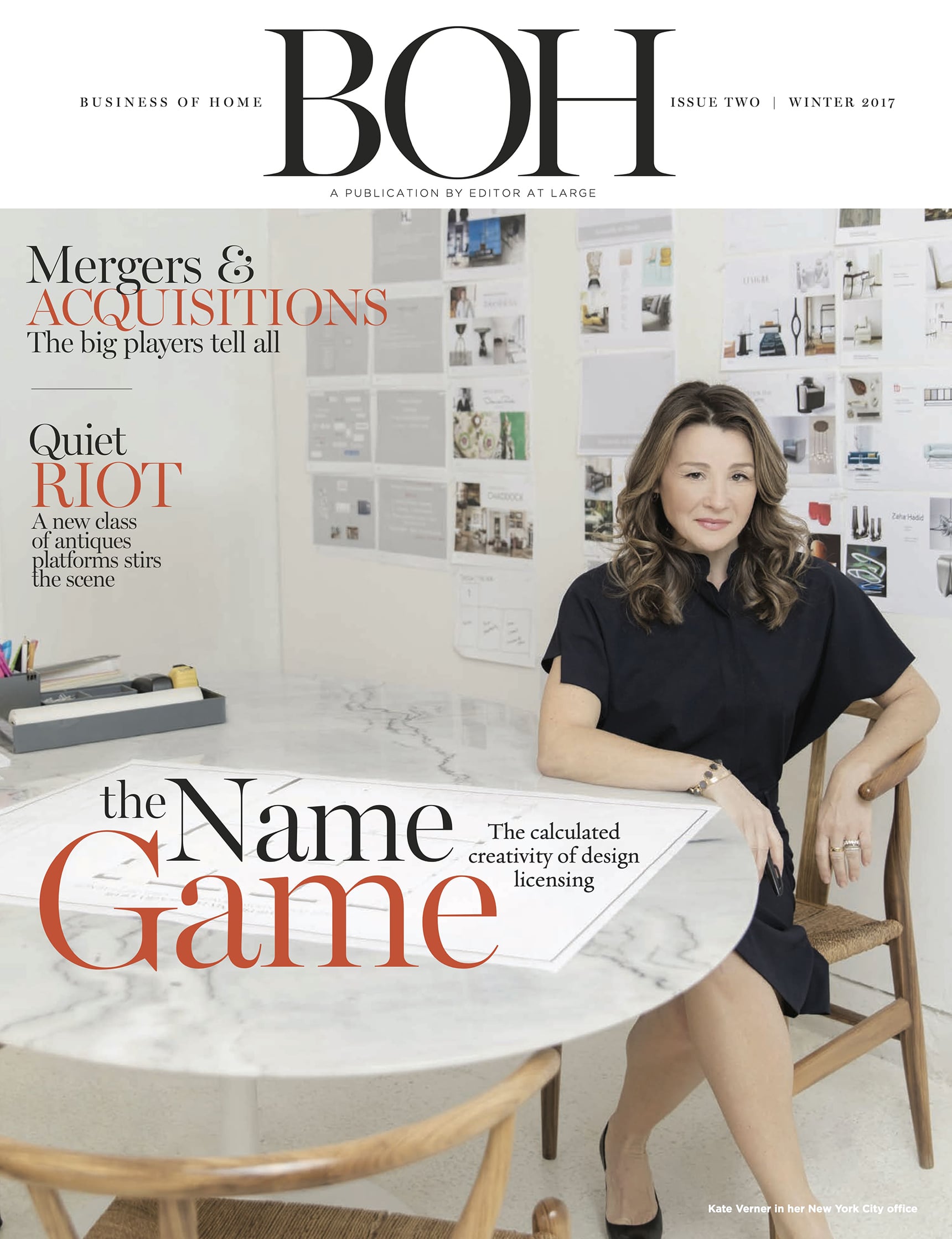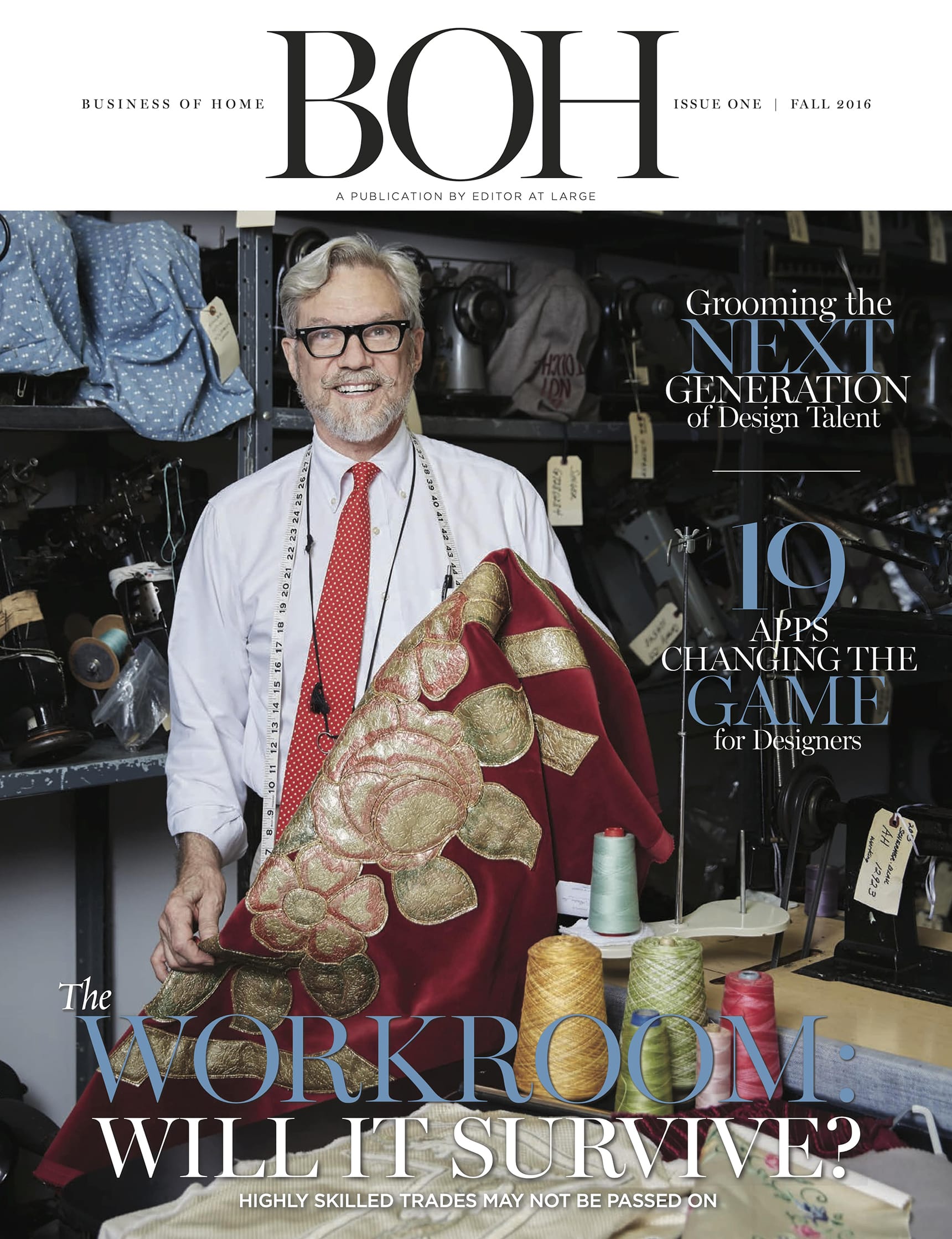For several years, Corey Damen Jenkins maintained two offices—one in Michigan and another in New York. As he prepared to shutter his firm’s Midwest outpost amid the pandemic, he sought to establish a supportive physical and emotional space for his team.
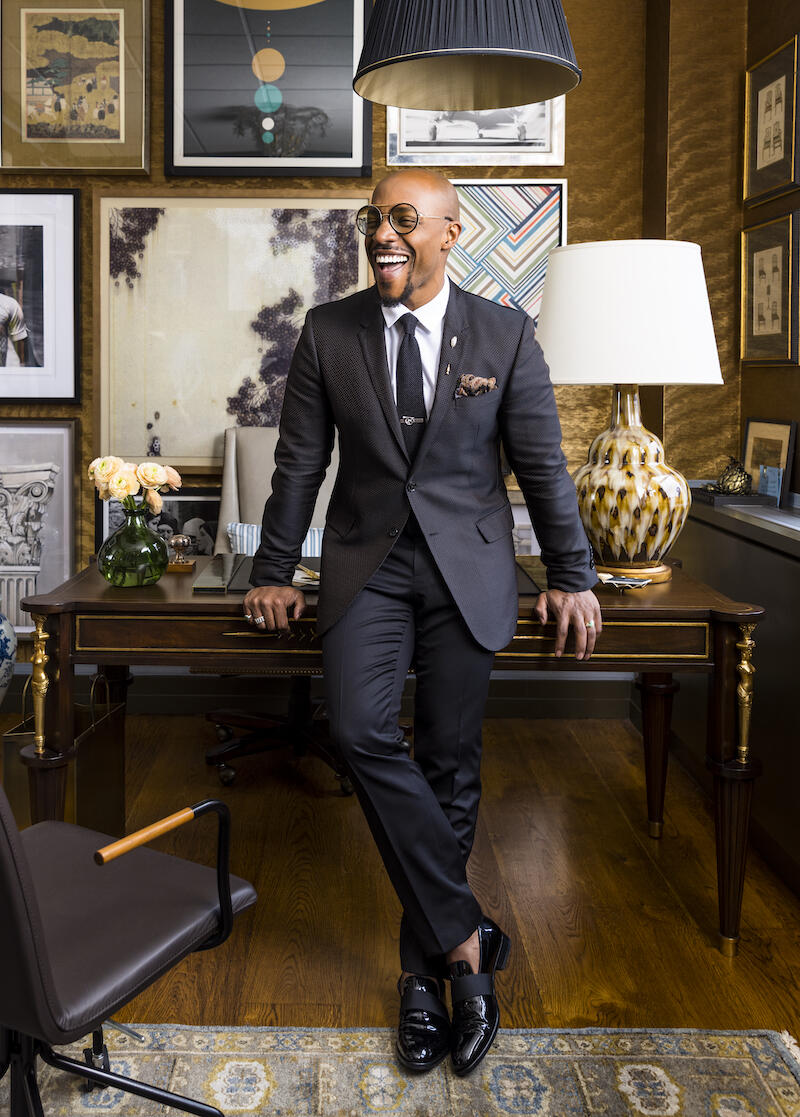
What kind of culture did you want to foster as you started hiring?
A big thing for me was creating an environment that was joyful, inspiring, and mentally and emotionally validating. Being a creative is challenging sometimes. So much of what we deal with is more about the human psyche and the psychology of the process than the actual work itself. In my office, I wanted to make sure that everyone felt welcome. There are going to be differences of opinion or taste, and I wanted a space where no one felt like they couldn’t speak up and have their opinions respected.
What does that look like in practice?
Our New York office space is a very ethereal experience on the top floor of this prewar building. When you walk in, you’re greeted by these 17-foot ceilings, which are patched with skylights, and the whole area is completely bathed in sunlight. I wanted to be able to say to my staff, “Look up, the sky’s literally the limit. Let your imaginations soar.” I wanted it to feel like you’re in a place where you are safe to create—where you’re going to be honored, validated and cherished for your contributions.
As you’re hiring, it’s like casting a movie. You have lead actors and supporting actors, but the entire cast has to get along. In many cases, we invite our entire staff to weigh in, even if they’re not in the interview process. It’s as simple as asking, What was [your read on] their energy? I like having that conversation with everyone, because they’re all going to be working together.
How have you seen that approach pay off?
We have a lot of fun. My team is out in the studio pumping Beyoncé right now—they have their Sonos blaring and they’re out there jamming. Around 5 o’clock, we’ll crack open a bottle of wine, which is our standard for Fridays. We get together as a staff to have a little refreshment—crudités or charcuterie board with some wine—and the goal is to not discuss any business, but just to be a work family and vibe off of each other before we go into the weekend. Coming together like that on Fridays keeps the office feeling pretty upbeat and optimistic.
You’ve prioritized people since you first launched your firm.
My first hires were a good accountant and an HR director. When the firm was based in Michigan and New York, I wanted to make sure that I understood the nuances of the state laws in both places as I was hiring—especially when it comes to independent contractors versus salaried employees. Early on, those two roles were part-time contractors that I outsourced, and they were able to help me make sound decisions.
Now, we use a professional employment organization, or PEO, to manage things like payroll, time off and benefits, and our director of business development is the liaison with that external HR team. It’s important for our employees to have a neutral place to go to discuss anything, whether that’s things going on at home or challenges they’re facing in the workplace. They should have someplace to discuss that and vent, and not necessarily to me. It helps everyone feel like they are in a safe place.
What is one firm-wide practice that boosted morale?
Every staff member has a business cell phone, which means we never have to invade their personal lives after hours or on the weekend. That’s one thing that enables people to really look at this job as a career that has boundaries. In our contracts, we instruct our clients and all of our partners not to contact our employees after business hours, and then we only give them the business numbers for each staff member, which enables them to turn off work when they’re done for the day.
What’s your approach to bringing your team to High Point?
With all of my licensing commitments, I’m spending most of Market in the showrooms that I have these partnerships with—I’m on the floor introducing buyers to the new collections and showing them how they can use these things, which means I can’t go out there and shop and source for our clients. So these days, our design staff will take directives from me [about what we’re looking for] and then they’ll go do that shopping. Part of that is about logistical support, but it’s also about growth and development as well. From an operations standpoint, it’s also important for them to meet the reps and salespeople who they correspond with every day—the people they’re working with to get the chandelier in on time, or to replace this lamp that got smashed—and to build a rapport in person. That makes it easier for them to work things out or ask for favors when necessary.
It’s also a good reminder that you aren’t the one placing the order for the lamp, so the relationship that your team has with your vendors is important to invest in.
Exactly. I’m not doing any of that. So when our operations manager or our design team run into so-and-so from Currey & Company or Kravet or Maitland-Smith at Market, it becomes more than just a name. I tell them, “This is very important to our growth as a business: You need to meet these people! That way, you don’t need to rely on me to put the fires out or make the big phone calls.”
For your staff members, it must feel good to be empowered to solve problems on their own. I think a lot of employees don’t have that in their design jobs.
A lot of designers take a very territorial approach with their staff. They don’t want anyone to know who works for them—and I totally get it, because poaching does happen. But at the same time, it’s almost like a parent with their children: You can’t continue to carry them across the street when they’re eight years old. If the company is going to grow and thrive, it can’t all be dependent on me to manage every single issue. And the best way to do that is to let the [team] feel empowered to step out there and lead their own relationships. It takes trust.
You recently shuttered your Michigan office amid the pandemic—but you did so with a very thoughtful, human approach. What did that require of you as a business owner?
The firm had operated with offices in Michigan since 2009 and New York since 2018. When the pandemic hit, the lease on the office in Michigan coincidentally came up for renewal. There was just so much uncertainty with the shutdown, and it didn’t seem prudent at the time to continue to maintain two offices and two sets of staff—especially when we were already doing everything remotely. So I decided not to renew. That meant giving my Michigan staff 11 months’ notice of my intentions.
I know a lot of employers would not do that—and I completely understand that strategically, because if you give them too much time, then you don’t know when they’re going to leave. If you’ve given them permission to look elsewhere, and then you really need them, you can be up a creek without resources. But I adored my staff in Michigan. I know that they have families to take care of, and in some cases they’re the sole breadwinner. It didn’t feel right to not give them that advance notice—we’d had several years of no turnover, and I felt like they had earned that loyalty from me. So I told them, “I’m giving you this notice so that you can land on your feet safely.”
Moving the firm to New York full-time also meant that we needed to staff up here, because none of our Michigan team could make that leap logistically. It was definitely an undertaking to find a brand-new team—or to cast a new movie, as we discussed earlier—and then to introduce them to our existing team in New York, our client base and licensing partnerships, and for everyone to respect the existing processes and brand.
It was one of the hardest transitions I’ve ever had to make—especially because we were still working full-time on our projects and partnerships throughout that shift.
As your team grows, how do you get comfortable with your changing role as an employer?
It’s about spending personal time with each team member one-on-one. I may take one team member with me as my corporate date for the Kip’s Bay President’s Dinner, and then a different member to another event. Or maybe we’re invited to a showroom opening, and I’ll take two team members. It gives us a chance to spend more time together, and no one feels like they’re being neglected. There are also days when I can get out there in the studio and work alongside the team. My office is for private calls, staff meetings, client meetings and confidential business stuff. But I love being out in the studio, snapping my fingers and singing along with Beyoncé, like everybody else. And I think that when the team sees you out there working with them, it makes them feel good.
I’m not trying to be Miranda Priestly. I think that if principals can just take the edge off and trust a bit more, they can command respect without being unapproachable. I’m an Aries: If you get on my bad side, I can bring out the Miranda, and our contractors can confirm that. Because look, I still have a business to run, and sometimes, you do need to give staff constructive feedback. But even then, I call it “constructive feedback” instead of “constructive criticism,” because I don’t want to criticize anyone. We have those tough conversations sometimes, and that’s how the team learns to respect you: because you’re being honest.
And that’s how you grow.
I think sometimes principals can almost cower in fear of losing team members when the work is overwhelming and you need help. I’ve been guilty of this in the past: You’re afraid that if you give constructive feedback, or if you tell an employee that they have to be on time every day, or that they’re slacking off and they need to be more diligent—you think that person might leave. And yes, that might happen. But if it does, then that person’s not meant to be with you.
My team will tell you: I’m nice, but don’t get it twisted. I have high expectations for us because our clients have high expectations for us, and we’re not going to compromise on our standards. But there’s a way to find the balance. If you’re kind to people, and you spend time together over wine and a charcuterie board on a regular basis, then when you do have that constructive feedback conversation, it’s hard for them to take it personally because they know that you care about them. When principals don’t do the other stuff and then they give you the tough conversation, that’s when you think, “My boss doesn’t like me.”
So it’s important to make time for personal connection.
Exactly. We look forward to unwinding at the end of the day on Friday, when we get to connect—and then we all go into the weekend feeling refreshed.
Homepage image: Corey Damen Jenkins thoughtfully outfitted his light-filled New York office to create a safe haven and foster inspiration for his team | Andrew Frasz Photography















